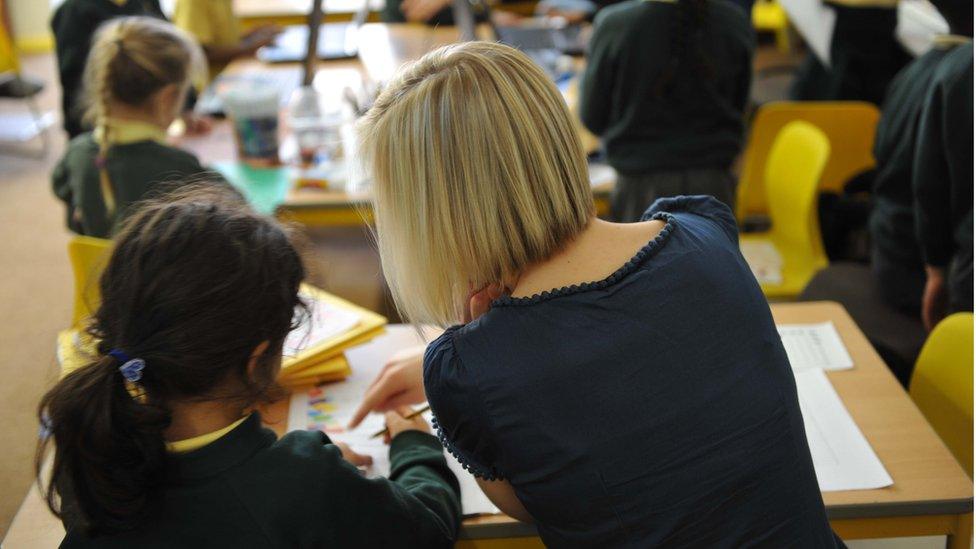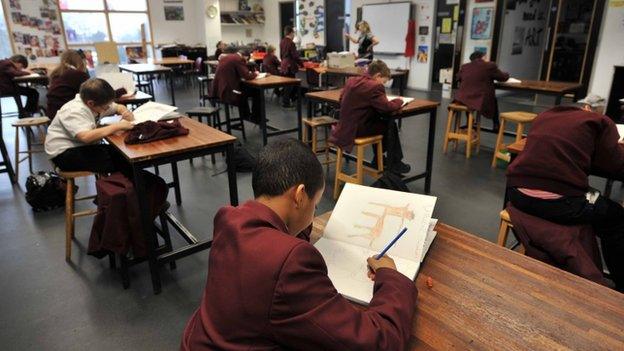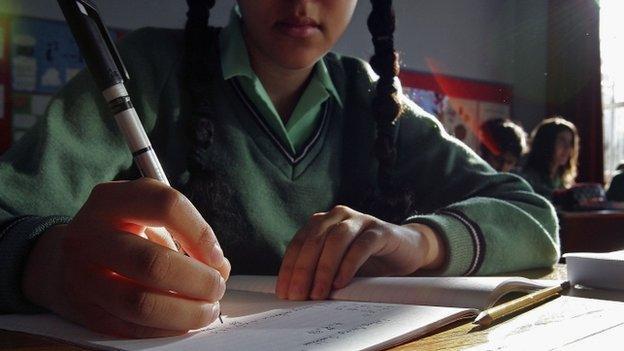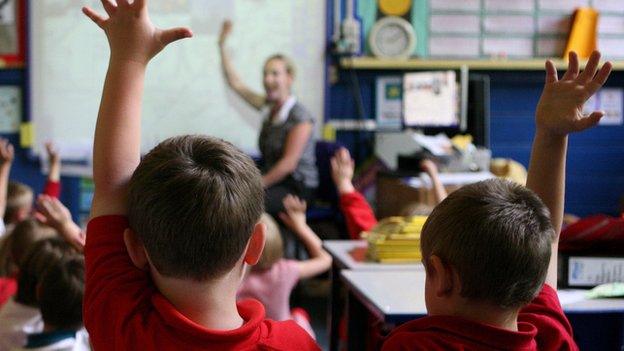Bursary cuts 'risk primary teacher numbers'
- Published

Experts fear the cuts will make primary teacher training less attractive
Bursaries for trainee primary teachers in England will be slashed from next year, sparking fears the move could fuel the teacher recruitment crisis.
Some of the bursaries available this year will be two thirds less in value for trainees who start in 2016.
Calculations by the Times Educational Supplement (TES), external suggest the changes could affect more than half of trainee primary teachers.
The government said bursaries were targeted at the areas in most need.
Primary cuts
The Department for Education's list of funding available to trainee teachers for the year 2016 to 17, external shows bursaries for primary teacher trainees with first-class degrees or PhDs will fall to £3,000 - down from £9,000 this year, external.
Bursaries for primary trainees with 2:1 degrees or master's qualifications will fall from £4,000 this year to £3,000 in 2016.
This year primary maths trainees with 2:2 degrees or better were offered a £12,000 bursary. Next year this will fall to £6,000.
For primary maths trainees with degrees lower than a 2:2 the bursary will be cut from £9,000 to £3,000.
Nearly half of primary teacher trainees who started their courses in September 2014 received a bursary - some 8,900 trainees, according the TES analysis.
Prof John Howson, an expert in the teaching workforce, described the cuts to bursaries as "very risky".
Prof Howson, an honorary research fellow at Oxford University, said although the government met its targets for primary teacher recruitment this year, it missed them the previous year.
He said cuts to the bursaries could prompt "a yo-yo effect" and risked "creating a crisis in primary where there isn't one".
The bursaries can be used for living expenses or to offset some of the £9,000 tuition fees for trainee teachers on university courses. They can be paid to trainees on both university and school based training schemes that do not carry a salary.
Localised shortages
Experts warned that other careers which do not require trainees to incur more debt would become more attractive to graduates.
"The reduction of bursaries could mean it is not attractive for people to train to teach," said Lizana Oberholzer of the National Association of School Based Teacher Trainers.
In particular she warned national figures, which show there are enough primary teachers this year, often hide local shortages - for example in areas such as Oxfordshire and Buckinghamshire, where she is based.
"We are worried we won't be able to recruit high quality teacher trainees without the incentive of high value bursaries in future," she said.

Teacher numbers and quality are at an all time high, says the government
A Department for Education spokesman said the number and quality of teachers was "at an all time high" and the government wanted to continue attracting the most talented people to the profession.
"Our generous bursary system is reviewed on an annual basis to ensure it is targeted at those areas which are most in need.
"We have exceeded our recruitment target for primary teachers and thanks to our wider reforms are confident we will continue to attract top-quality candidates to this area."
- Published28 October 2015

- Published5 October 2015

- Published2 July 2015

- Published18 April 2015
